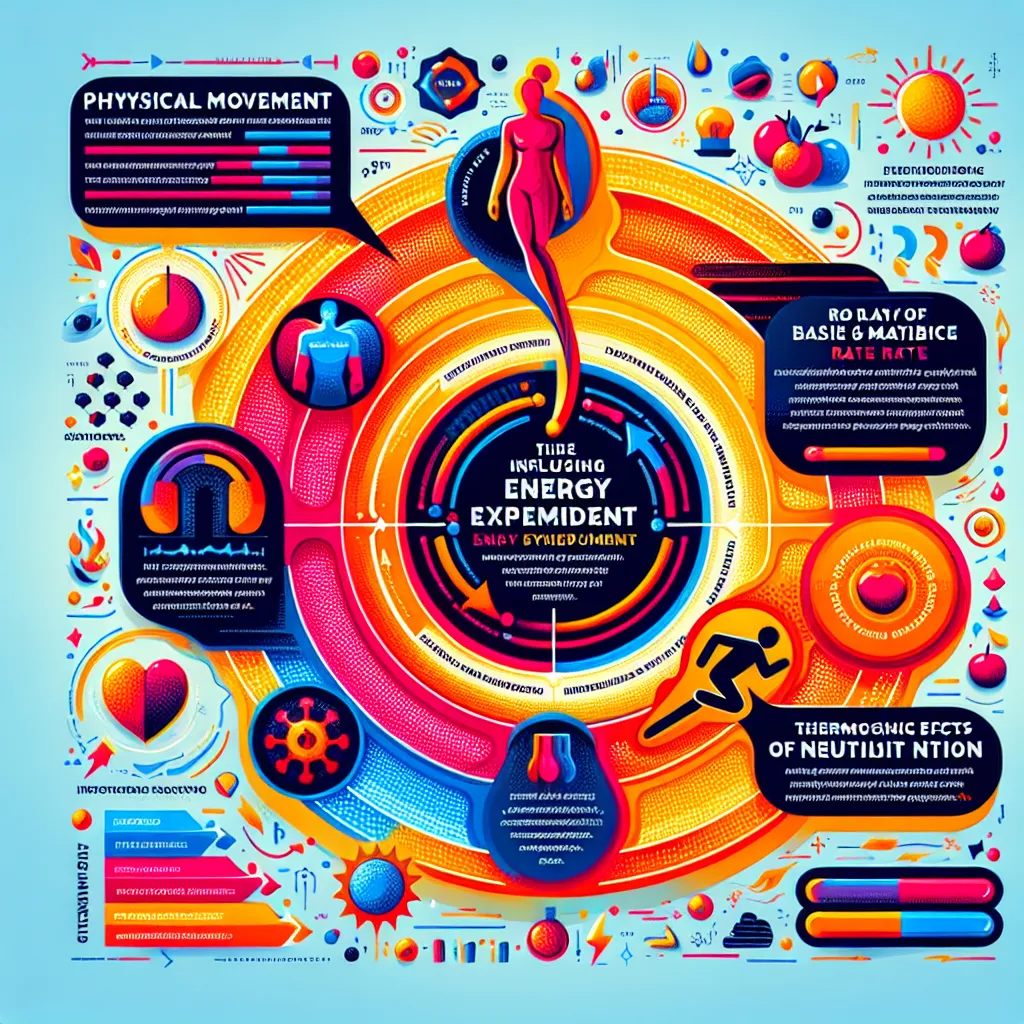Energy expenditure is a crucial concept in fields such as physiology, nutrition, and sports science. As an IELTS candidate, understanding this term and its related vocabulary can significantly enhance your performance in the exam. Let’s dive into the intricacies of ‘energy expenditure’ and explore how to effectively use it in your IELTS preparation.
Understanding ‘Energy Expenditure’
Definition and Pronunciation
- Definition: Energy expenditure refers to the amount of energy that a person uses to breathe, circulate blood, digest food, and be physically active.
- Part of Speech: Noun phrase
- Pronunciation: /ˈenədʒi ɪkˈspendɪtʃə/
Context and Usage
Energy expenditure is commonly used in discussions about health, fitness, and metabolism. Here are some examples of how it’s used in context:
-
“Energy expenditure increases significantly during intense physical exercise.”
- This sentence demonstrates the direct relationship between physical activity and energy use.
-
“Researchers are studying how energy expenditure varies among different age groups.”
- Here, the term is used in a scientific context, showing its relevance in research.
-
“To maintain a healthy weight, it’s important to balance calorie intake with energy expenditure.”
- This example illustrates the concept’s importance in weight management discussions.
-
“The wearable device tracks your daily energy expenditure to help you optimize your fitness routine.”
- This sentence showcases the term’s relevance in modern fitness technology.
-
“Climate change may affect human energy expenditure patterns due to changes in temperature and physical activity levels.”
- This example demonstrates how the concept can be applied to broader environmental discussions.
In IELTS, you’re likely to encounter ‘energy expenditure’ in Reading passages related to health, sports science, or environmental studies. It may also be useful in Writing Task 2 essays on topics such as public health or fitness trends.

Vocabulary Analysis
Word Structure
The phrase ‘energy expenditure’ consists of two parts:
- Energy: the power derived from physical or chemical resources
- Expenditure: the act of spending or using something
Understanding these components can help you grasp the full meaning and remember the phrase more easily.
Synonyms and Antonyms
Synonyms:
- Calorie burn (/ˈkæləri bɜːn/): The amount of calories used by the body.
- Energy consumption (/ˈenədʒi kənˈsʌmpʃən/): The process of using up energy.
- Metabolic rate (/metəˈbɒlɪk reɪt/): The rate at which the body uses energy.
Antonyms:
- Energy conservation (/ˈenədʒi ˌkɒnsəˈveɪʃən/): The practice of reducing energy use.
- Energy storage (/ˈenədʒi ˈstɔːrɪdʒ/): The capture of energy produced for use at a later time.
Memorization Techniques
Mind Mapping
Create a mind map with ‘energy expenditure’ at the center, branching out to related concepts such as:
- Physical activity
- Basal metabolic rate
- Thermic effect of food
- Body composition
- Environmental factors
This visual representation can help you remember the term and its associated concepts more effectively.
Storytelling
Imagine a story about a fitness enthusiast named Alex who is trying to lose weight. Alex learns about energy expenditure and how it affects their weight loss journey. By tracking their daily activities, diet, and rest, Alex discovers how to balance their energy intake with their energy expenditure to achieve their fitness goals.
Practical Application
IELTS Practice Exercise
Write a paragraph using ‘energy expenditure’ and at least three related terms from the mind map. Focus on how understanding energy expenditure can help individuals maintain a healthy lifestyle.
Example:
“Understanding energy expenditure is crucial for maintaining a healthy lifestyle. It encompasses not only the calories burned through physical activity but also the energy used for basic bodily functions, known as the basal metabolic rate. Additionally, the thermic effect of food contributes to overall energy expenditure. By comprehending these factors, individuals can make informed decisions about their diet and exercise routines, leading to more effective weight management and improved overall health.”
Repetition and Review
To ensure long-term retention, revisit the concept of energy expenditure regularly. Try explaining it to someone else or writing short paragraphs about it in different contexts, such as sports performance or weight loss programs.
Conclusion
Mastering the term ‘energy expenditure’ and its related vocabulary can significantly enhance your performance in the IELTS exam, particularly in Reading and Writing tasks. By understanding its definition, context, and associated terms, you’ll be better equipped to tackle questions and essays related to health, fitness, and metabolism.
Remember to practice using this term in various contexts and review it regularly to solidify your understanding. Don’t hesitate to use it in your IELTS Speaking test if the topic allows, as it demonstrates a high level of vocabulary knowledge.
We encourage you to share your own sentences using ‘energy expenditure’ in the comments below. How would you apply this term in an IELTS essay or speaking response? Your contributions can help fellow learners and spark further discussion on this important concept.